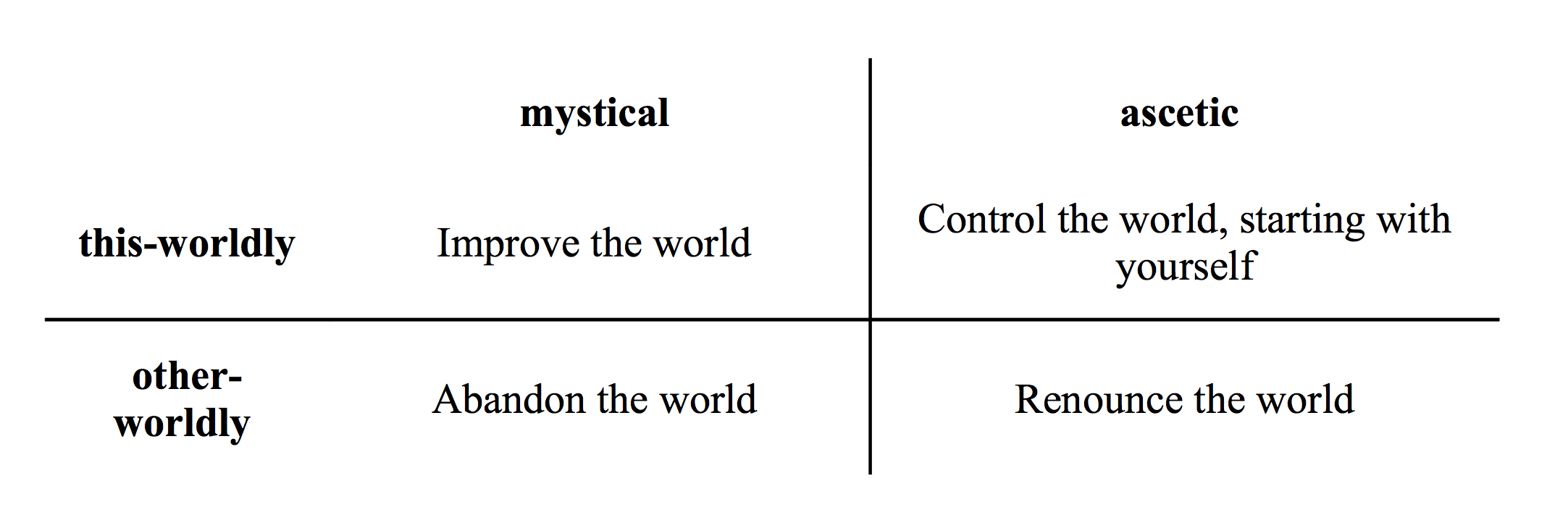Why would someone join a religious commune?
Why would someone join a religious commune?
Ryan Schram
Mills 169 (A26)
ryan.schram@sydney.edu.au
March 29, 2017
Available at http://anthro.rschram.org/2667/4
Readings
Palmer, Susan J. 2010. “The Twelve Tribes: Preparing the Bride for Yahshua’s Return.” Nova Religio: The Journal of Alternative and Emergent Religions 13 (3): 59–80. doi:10.1525/nr.2010.13.3.59.
Other readings
Bell, Catherine. 2009. Ritual: Perspectives and Dimensions–Revised Edition. Oxford: Oxford University Press.
Haddon, Malcolm. 2013. “Anthropological Proselytism: Reflexive Questions for a Hare Krishna Ethnography.” The Australian Journal of Anthropology 24 (3): 250–69. doi:10.1111/taja.12050.
Other media
Speigel, Alix. 2011. “Why Cleaned Wastewater Stays Dirty In Our Minds.” Morning Edition. National Public Radio. http://www.npr.org/2011/08/16/139642271/why-cleaned-wastewater-stays-dirty-in-our-minds.
“The Twelve Tribes: The Official Website of the Twelve Tribes Communities.” 2013. http://twelvetribes.org/. Accessed 2 February 2015.
More information on the Twelve Tribes.
Types of social action
Traditional: Like a habit or an unquestioned rule.
Affective: Emotionally motivated action, personally meaningful
action.
Value-rational (Wertrational): The pursuit of a collective good or goal.
Instrumentally rational (Zweckrational): Getting the best deal. Means-ends calculation.
For Weber some actions, and some societies, are more rational than others. This is how Ortner looks at avoidance of pollution. It is a “rational” way of acting. It is an effort to make sense of the world and one's place in it. For Weberians, religion in general is a very important and very special type of social action.
Quiz: What types of social action best describe these activities?
Brushing your teeth
Waiting for the train on the platform
Waiting for people to get off before you get on
Helping a woman with a stroller get on the train
Buying a friend a coffee as a “treat”
Signing a petition to end offshore detention
Donating money to the Salvation Army for Cyclone Winston
Buying ramen noodles on campus and heating them up in the Learning Hub
Talk to each other about the best Weberian types of social action to classify these activities. Do you agree?
What is our analysis of these activities?
Was it clear which Weberian type applied to which action? Why or why not?
How would you classify these actions?
Praying in a church
Sacrificing a pig
Baptizing an adult
Handing out religious literature on a street corner
Meditating
Avoiding contact with alcohol or another prohibited, 'dirty' substance.
In other words, if religion is social, and religious activities are also social actions, what kind of social action are they?
Are all religious activities motivated by the same kinds of social meanings?
Do all religious forms, institutions or belief systems reflect the same social values?
Durkheim and Weber, two daimons on my shoulders
I like to think of Emile Durkheim and Max Weber as two little daimons who sit on each of my shoulders, each whispering different things in
my ears.
Durkheim looks at society as a totality.
Weber looks at society as something that develops out individual
patterns of action.
Durkheim says that patterns of action are social facts. That is why
they matter.
Weber says that social patterns and institutions form because social actions have a meaning to the
actor and to the society at large. Social institutions and structures are particualr ways of embodying all the things that people in society value.
A brief, selective history of US Christianity and US counterculture
The millennium in religious history.
“Great awakenings,” Shakers, and Millerites
German Romanticism and the birth of Californian culture
The Jesus People and the Twelve Tribes
In other words...
In other words, I am arguing that the Twelve Tribes owes its origins to movements that also lead to Whole Foods, Food Not Bombs, Seventh Day Adventists and the Latter Day Saints (“Mormons”).
What do all these things have in common?
Max Weber, key ideas about religion
Rationality. Some religions, like any form of social action, are more “rational” than others. People think more about them, and work out more explicitly why they make sense as a means to an end.
Charisma, tradition and authority. Much as Weber discusses social action in terms of the motivations underlying it, he also seeks to distinguish the different bases on which people accept things as true, convincing, legitimate. Accepting something because it is traditional, or because it's the law, is different than feeling inspired to believe in something.
Prophecy about the future millennium can shake people out of one way of reasoning about their actions and inspire them to seek meaning in something else.
Salvation of one's soul can be more motivating than seeking to obey traditional rules.
Max Weber's types of religions
First Weber separates magical religions (do ut des) from rational-ethical religions.
Then among rational-ethical religions, he maps them into four types, on two axes.
This leads to four ideal types of religion.
contemplation: Gnostic Christians, New Age religions, charismatic healers.
dissociation: trance, meditation
ascetic world-rejection: Christian hermits, Hindu mendicants, quietism.
ascetic mastery: Calvinist Protestants… and Ben Franklin. (Weber 1946 [1915]: 325)
A table of four types of religion

(after Bell 2009: 178 and Weber 1946 [1915]: 325)
How useful is this scheme of classification?
Where would you put Rastafarians?
Where would you put Hare Krishna?
Where would you put Branch Davidians (followers of David Koresh of Waco, Texas)?
Where would put John Frum followers (a 'cargo cult' on Tanna Island, Vanuatu)?
Where would you put the Twelve Tribes?
References
Bell, Catherine. 2009. Ritual: Perspectives and Dimensions–Revised Edition. Oxford: Oxford University Press.
Weber, Max. 1946. “Religious Rejections of the World and Their Directions.” In From Max Weber: Essays in Sociology, edited by C. Wright Mills and H. H. Gerth, 323–59. New York: Oxford University Press.
A guide to the unit
ANTH 2667: The anthropology of religion—a guide to the unit
-
-
Weekly plan and assigned readings:
1,
2,
3,
4,
5,
6,
7,
8,
9,
10,
11,
12,
13.
-
-
←
→
/
#